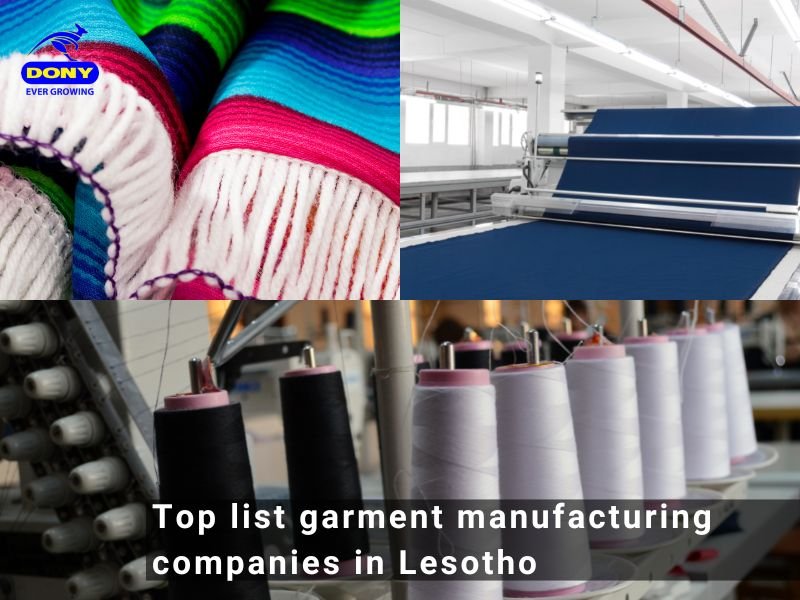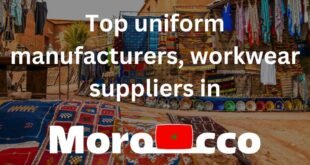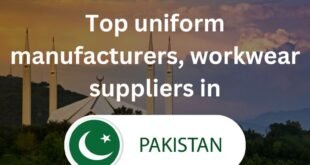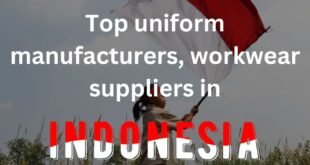Whether you’re looking for a garment manufacturing company in Lesotho, or simply looking for some information about the country, you’ve come to the right place. In this article, you’ll learn about some of the top manufacturing companies in the country, including their locations and contact info. You’ll also find out more about the industries they specialize in, and the health and safety issues that may have influenced their choices.
Hippo Knitting
Located in the southern African nation of Lesotho, Hippo Knitting is one of the top garment manufacturing companies in the country. It produces workout wear for American clothing line Fabletics, which is owned by actress Kate Hudson. The company announced a fitness app and more stores recently, and is currently in the process of expanding. But the company’s success has not translated to safer working conditions in Lesotho.
Workers at Hippo Knitting say they have experienced harassment and abuse at the factory. Management allegedly shouts at workers and forces them to work well into the night. They also report being verbally abused, as well as being subjected to body searches.
In May, over 40,000 workers took part in a national strike. They called for increased wages and better working conditions. In response to these calls, Fabletics suspended its operations with Hippo Knitting. While the company investigated claims of workplace misconduct, it promised to pay workers’ salaries.
However, a new investigation conducted by a U.S.-based nonprofit, The Fuller Project, and TIME, finds that these claims may have been overstated. The Fuller Project and TIME partnered on a magazine article about Hippo Knitting, but did not identify the factory or the reporter involved.
The story, which focuses on the female workers at Hippo Knitting, is a sobering one. They allege that their work environment is abusive, despite efforts by the management to introduce safety measures following the COVID-19 pandemic. Several employees reported being sexually assaulted by supervisors and others have alleged that managers routinely searched their bodies. They have also complained about poor air circulation and lack of social distancing.
Morocco
Despite the country’s small size, Lesotho’s textile and garment manufacturing industry is now one of Africa’s largest. In 2006, it accounted for nearly 30 percent of the total SSA garment exports. The majority of Lesotho’s apparel companies produce for the South African and US markets. However, the country is also seeking to diversify its industry base.
The garment and textile industries are a crucial part of the economy. The government has identified the industry as a potential comparative advantage. In 2021, it will launch a utilization strategy that is expected to boost garment production. The country’s goal is to diversify its industry base and increase its exports. It is looking to invest in a knit fabric mill and other upstream manufacturing processes for garments.
The country is also looking to improve its workforce and labour standards. The International Finance Corporation (IFC) launched the Better Work Lesotho initiative to help improve the relationship between workers and management. It is also monitoring the country’s compliance with core ILO labour standards.
As a low-income country, Lesotho’s manufacturing sector is faced with numerous challenges. The country’s unemployment rate is high, with 42 percent of its citizens unemployed. It also has a high HIV infection rate. There are reports of employers violating basic worker rights, such as the right to join unions. There are also reports of some factories abusing workers.
Swaziland
During the past eight years, the textile, apparel and footwear manufacturing industry in Lesotho has been the country’s largest formal private sector employer. In early 2003, the industry employed over 54,000 workers. However, employment has since decreased due to the phase-out of the Multi-Fibre Arrangement.
Lesotho has four garment plants, which make a total of 6.3m clothing units each year. The plants are supported by two commission embroidery firms and two garment screen printing companies. The plants receive a small number of orders from Southern African retailers.
The Eswatini state has not supported the apparel industry adequately. Most of the firms are owned by South African entrepreneurs and Taiwanese investors. The industry follows national labour legislation, but there are concerns about the rights of the workers. The Eswatini Employment Act provides for wage security. The government holds this money in trust and pays the workers if the firm experiences financial difficulties.
There is an opportunity for the Swazi government to improve the industry’s regulatory environment and worker protections before AGOA’s benefits are revoked. This would help prevent job losses and protect regional integration.
The main export market for the Eswatini apparel sector is South Africa. This market is served by a large number of companies, with the top six firms accounted for about 80% of the market.
Eswatini is a landlocked country located in Southern Africa, bordering both South Africa and Mozambique. It is a member of the Southern African Customs Union and has trade preferences with the United States and the European Union.
Economic multipliers
Despite the country’s small population, the textile and apparel industry in Lesotho plays an important role in the economy. It provides direct employment and indirectly benefits about 13% of the population. It also has linkages to the downstream service sectors, such as tourism and water utilities. The industry has been growing since the 1990s and now employs 46 500 people. However, it is still facing challenges such as declining exports and declining private investments.
The textile and apparel industry is the largest formal sector employer in Lesotho. Its employees earn about M500 million a year. There are four Lesotho garment plants, two of which produce denim and woven garments. They receive most orders from garment sourcing houses in Cape Town and Durban. Nevertheless, the plants receive only a limited number of direct orders from Southern African retailers.
Most of the Lesotho garment firms specialise in knitted and woven fabrics. However, they do not have in-house capabilities to perform garment dyeing, finishing, and packaging. They import all the raw materials required to manufacture their products.
The main buyer of Lesotho garments is the USA. The US imports about 85% of Lesotho’s textile and apparel exports. Several leading American brands such as Levi Strauss, GAP, Walmart, and Ralph Lauren purchase Lesothos garments. Some buyers are pressuring the companies to improve their capabilities.
Lesotho’s garment manufacturing industry has grown from a few factories in the 1990s to become the largest private employer. Currently, there are four garment plants in Lesotho, all of which are owned and operated by South African companies.
Health and safety infractions
Despite a flurry of activity by NGOs and trade unions, health and safety infractions at top garment manufacturing companies in Lesotho continue to be a problem. A recent report by the Clean Clothes Campaign drew attention to the prevalence of unsafe working conditions in the factories. In particular, the report focused on harassment and gender-based violence in the Maseru region.
The Clean Clothes Campaign report found widespread evidence of harassment by managers and repression of trade union activities. It also linked some of the major brands in the apparel industry to sexual violence in Lesotho. Several brands signed a pledge to end the practice.
A new report from Workers Rights Consortium (WRC) details the sexual violence that workers face in Maseru, Lesotho. The report includes testimonies from 120 women who said they were subjected to forced sex with male supervisors. Some alleged they contracted HIV from their supervisors. Others alleged they were raped. The government of Lesotho has acknowledged the issue and has instructed the factory to fumigate surfaces to avoid the spread of the virus.
In other news, the Ministry of Labour and Employment has instructed the factory to introduce smaller working shifts. The Ministry of Health has also advised the factory to make these changes to minimise the likelihood of a recurrence.
The Better Work Lesotho initiative is a labour law monitoring and compliance program launched by the International Finance Corporation and the International Labour Organization. It aims to improve the relationship between industry and workers, and improve the transparency of Lesotho’s labour laws. It invests in worker training and inspections, and monitors industry adherence to core ILO labour standards.
Impact of coronavirus on global fashion industry
During the coronavirus pandemic, the fashion industry suffered severe setbacks. The outbreak halted production, forced retailers to close stores, and caused a massive drop in sales. The fashion industry is a global one, affecting suppliers, manufacturers, retailers, and consumers all over the world. The impact of the coronavirus on the fashion industry was large, and it drew much attention from the media.
Many retailers cancelled orders from vendors, suppliers, and employees during the pandemic, and others went so far as to dismiss workers. The media highlighted the fact that several global fashion retailers provided protective equipment to their workers. However, a number of fashion retailers filed for bankruptcy during the pandemic.
The impact of the coronavirus on global fashion was also felt in the textile industry. The virus had a major impact on the industry, as it resulted in a 43.5 percent drop in clothing sales in Europe. It also affected textile mills, retail store assistants, and fiber farmers.
A number of studies were conducted to examine the impact of the coronavirus on the global fashion industry. Some of the more important findings are that the fashion industry has suffered a stinging blow from the coronavirus, and it will take some time before the industry returns to normalcy.
Although the COVID-19 pandemic is an issue that affects the global economy, the impact of the pandemic on the fashion industry has been particularly devastating. The repercussions are being felt by consumers, as the virus is spreading rapidly. It has left millions of people without jobs, and it is causing severe financial strain on countries throughout the world.
Golden Threads
Founded in 1988, this company is one of the leading clothing manufacturers in Lesotho, supplying apparel to both local and international markets. Its products range from t-shirts, jeans, jackets and sportswear to traditional African wear such as seshoeshoe or leteisi attire – all made with high standards of quality control techniques adopted by its experienced staff.
Maranatha Clothing
Another major player on the market is Maranatha Clothing which manufactures various types of apparel ranging from men’s suits to ladieswear such as evening gowns and dresses for special occasions like weddings or prom nights etc., using innovative designs created by their talented designers who make sure that every piece meets global standards for comfortability and fashion sense!
Lelo Textile Manufacturing Factory
Established back in 1995, this factory specializes mainly on knitwear garments including t-shirts, polos sweaters etc., all with superior craftsmanship that ensure maximum customer satisfaction . They are also actively involved in support initiatives like empowering young entrepreneurs through providing them with job opportunities related to sewing machines operation ,pattern making or even marketing !
Ntšekele Textiles
A family owned business that has been operating since 1990 , Ntšekele Textiles offer top notch fabric crafts including woven fabrics , embroidery work , hand printing techniques etc,. Their mission is creating beautiful pieces while supporting sustainable economy growth within rural communities where they source raw materials from!
Chilasco Apparel Group
Started off back 1966 Chilasco Apparel Group remains one the largest producers of sports wears across Sub – Saharan African region today due its state -of-the art facilities equipped with cutting edge technology enabling them produce anything client might need within short amount time !
Masupha Crafts
Having established itself over three decades ago Masupha Crafts specialize handmade items produced directly small cooperative run women living rural areas nearby capital Maseru city thus helping promote craftmanship traditions passed down centuries generations past!
LYF Clothing
Founded in 2013, LYF Clothing is one of the leading apparel firms based out of Maseru, Lesotho’s capital city. The company specializes in producing men’s and women’s fashion garments with unique designs, high quality fabrics and advanced production processes such as laser-cutting to create eye-catching products that have earned them multiple awards for excellence over the years.
Vodacom Apparel
Established back in 1997 as a joint venture between South African telecom giant Vodacom Group and local entrepreneurs from Maseru, Vodacom Apparel has become one of the most respected names among garment makers operating within South Africa’s borders. The company produces a wide range of fashionable clothing items ranging from casual wear to formal attire suitable for school uniforms or corporate events alike.
Fleur De Lis Textiles
Specializing primarily on childrenswear since their inception back in 2018 Fleur De Lis Textiles quickly rose to prominence due to its unique take on creating durable but comfortable clothes made using modern techniques like digital printing while maintaining traditional craftsmanship methods when it comes to sewing garments together which results into beautiful end products that are highly sought after not just within Lesotho but abroad too!
KPA Clothing
One of the oldest players around when it comes down to textile production KPA Clothing was started way back 1996 by three brothers who wanted to bring something new into this industry namely producing affordable yet stylish apparel items meant for everyday use at unbeatable prices without sacrificing quality standards which led them onto becoming one of biggest suppliers across Southern African region today!
Quigley & Co.
Founded just last year Quigley & Co is probably one latest additions into list however they already managed make name themselves thanks innovative approach designing custom tailored outfits spanning multiple genres such workwear activewear even bridal couture featuring intricate detailing exquisite fabrics at same time offering customers option personalize their pieces according individual preferences budget constraints!
Hela Clothing
Hela Clothing is one of Lesotho’s leading apparel producers, with five factories across the country producing garments for numerous global brands such as Nike and Puma. Founded back in 2006 by two local entrepreneurs – Tšepang Mohapi & Lelisa Moleleki – Hela now employs over 1 500 workers throughout their facilities and produces millions of pieces annually.
Tekstilpromet-Maseru
This company is owned by Croatian textile giant Tekstilpromet Group and operates three separate production units located near Maseru city center. It specializes primarily on denim jeans production but also offers cut & sew services to clients like Zara or H&M among others.
Sefate Textiles LTD
Established back in 2011 Sefate Textiles Ltd has quickly become one of Lesothos biggest exporters with six production lines dedicated to producing quality garments for international customers like Ralph Lauren or Calvin Klein etc… They have recently opened their own design studio focusing on developing new product ranges too!
Nalane Apparel Manufacturers (NAM)
This big player was founded way back 1994 and since then they have been able to expand into four different locations throughout Lesoto offering various services from dyeing/finishing through pattern cutting up until final packaging ready for shipment abroad! NAM counts names like Levi’s or Walmart amongst its list regular clients which speaks volumes about their commitment towards providing quality products as well as customer satisfaction levels within this highly competitive industry sector!
 Henry Pham (Pham Quang Anh), CEO of DONY Garment
Henry Pham (Pham Quang Anh), CEO of DONY Garment
This year, we have found that many international buyers are seeking new suppliers based in nations outside of China and Thailand to purchase many goods and products, including uniforms, workwear, reusable cloth face mask, and protective clothing.
At DONY Garment, we are proud to welcome international customers, especially those based in the US, Canada, the Middle East, and the EU market to discover the professional production line at our factory in Vietnam.
We guarantee our products are of the highest quality, at an affordable cost, and easy to transport across the world.
 Dony Garment Vietnamese Garment Factory Supplier – Apparel Clothing & Textile Manufactured. Private label clothing Produce women, men, children baby wear – Casual Clothing, Uniform, Workwear
Dony Garment Vietnamese Garment Factory Supplier – Apparel Clothing & Textile Manufactured. Private label clothing Produce women, men, children baby wear – Casual Clothing, Uniform, Workwear



 Henry Pham (Pham Quang Anh), CEO of DONY Garment
Henry Pham (Pham Quang Anh), CEO of DONY Garment



